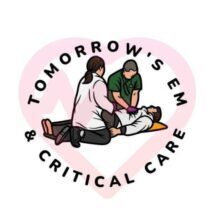Are you preparing for the MRCEM Primary exam? This crucial step in your emergency medicine career requires a solid study plan and the right resources. In this guide, we’ll explore essential tips and strategies to help you succeed.
Contents
Understanding the MRCEM Primary Exam
The MRCEM Primary exam is a significant milestone in the journey to becoming a certified emergency medicine professional. This examination assesses the foundational knowledge necessary for practicing emergency medicine. It consists of multiple-choice questions covering a wide range of topics, including anatomy, physiology, pharmacology, pathology, microbiology, and evidence-based medicine.
Understanding the structure and requirements of the exam is the first step in preparing effectively. Familiarize yourself with the exam format, the number of questions, and the allotted time. This will help you manage your time efficiently during the actual exam.
Key Topics to Focus On
To excel in the MRCEM Primary exam, it is essential to focus on the core subjects. Here are the key topics you should prioritize:
- Anatomy: Detailed knowledge of human anatomy, including the musculoskeletal, cardiovascular, respiratory, gastrointestinal, and nervous systems.
- Physiology: Understanding the functions of different body systems and how they interact.
- Pharmacology: Knowledge of common medications, their mechanisms of action, side effects, and interactions.
- Pathology: Study of disease processes and how they affect the body.
- Microbiology: Understanding of microorganisms, infections, and antimicrobial treatments.
- Evidence-Based Medicine: Principles of clinical research and applying evidence to clinical practice.
Focusing on these topics will ensure you cover the most critical areas of the exam.
Effective Study Strategies
Preparing for the MRCEM Primary exam requires a strategic approach. Here are some effective study strategies to help you succeed:
1. Create a Study Schedule
A well-structured study schedule is crucial. Break down your study material into manageable chunks and allocate specific times for each topic. This will ensure you cover all necessary content without feeling overwhelmed.
2. Use Flashcards
Flashcards are an excellent tool for memorizing key concepts and terms. Create flashcards for important topics and review them regularly.
3. Join Study Groups
Studying with peers can provide motivation and new insights. Join a study group where you can discuss challenging topics and share resources.
4. Practice with Past Papers
Practicing with past exam papers helps familiarize you with the question format and time constraints. It also highlights areas where you need further study.
5. Take Regular Breaks
Avoid burnout by taking regular breaks during your study sessions. Short breaks can improve focus and retention.
Exam Day Tips
On the day of the exam, it’s essential to stay calm and focused. Here are some tips to help you perform your best:
- Arrive Early: Ensure you arrive at the exam venue with plenty of time to spare.
- Bring Necessary Items: Make sure you have all required identification and materials.
- Read Questions Carefully: Take your time to read each question thoroughly before answering.
- Manage Your Time: Keep track of time to ensure you can complete all questions.
- Stay Calm: If you encounter a difficult question, take a deep breath and move on. You can return to it later if time permits.
Conclusion
Preparing for the MRCEM Primary exam can be daunting, but with the right strategies and resources, success is within reach. Stay focused, follow our tips, and you’ll be well on your way to passing the exam with confidence. Utilize high-yield study materials, practice with past papers, and manage your time effectively. Join study groups for collaborative learning and seek advice from those who have successfully passed the exam. Remember to balance your study schedule with adequate rest and relaxation to maintain peak performance. With determination and the right approach, achieving your goal is entirely possible.
